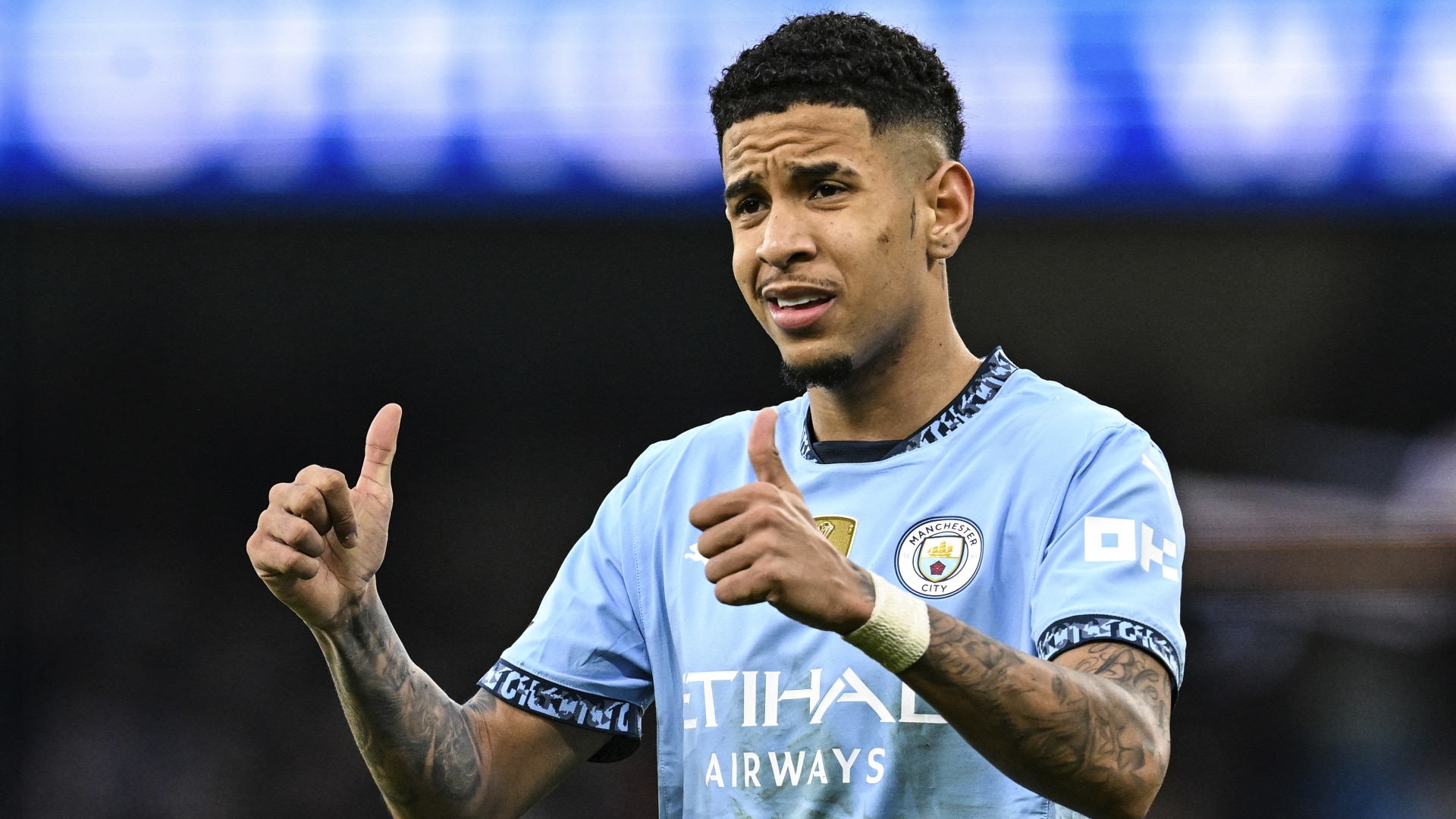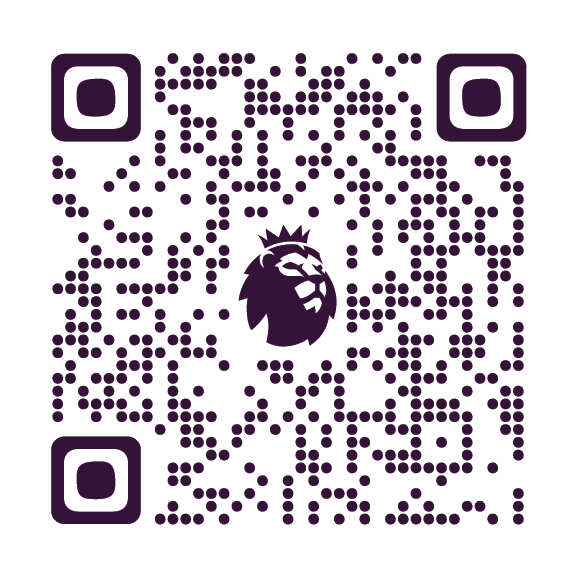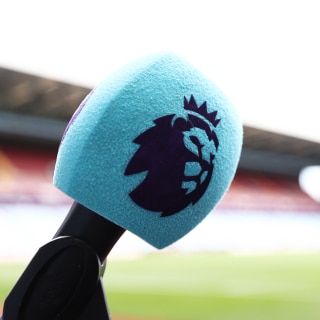Hello and welcome to the Premier Skills English podcast. This new series of Football English podcasts are based around the needs of football players and football fans and will present language you need to play the game, language you need to watch the game on TV and online and language you need to travel to the UK to see a match at a Premier League stadium.
Today, I am focusing on language for players and I’m going to talk about communication skills, specifically language and skills that players need to give and receive instructions on the pitch and also leadership language that club captains and coaches need.
While this podcast is aimed at players, a lot of the language and skills will be useful in other situations so if you’re not a player, I think there’s probably still going to be some useful language and some useful ideas and if not, then you can at least improve your listening skills.
If you are listening to this podcast on Apple podcasts or Spotify, you should also visit the page for this podcast on the new Premier League British Council partnership website at premierleague.britishcouncil.org On the page for this podcast, you’ll be able to read the transcript. If you find it difficult to understand me, it might be easier to read what I’m saying at the same time and the entire transcript is available on the page for this podcast. You will also find some language activities to help you practice using some of the new vocabulary and then there will be a discussion task and a football phrase.
Before I start talking about communication skills for players, I want to quickly talk about last week’s football phrase and give you one more chance to guess.
Last week, the football phrase today was one of the 200 items of football vocabulary on the website and it’s what is used to decide which team is going to kick off. The phrase is ****-****. Did you work out what the football phrase was?
The phrase was a coin-toss. This is what happens at the beginning of a match. The referee tosses or flips a coin and the captains choose heads or tails and then the one that wins gets to kick off.
Keep listening till the end of the podcast for a new football phrase.
Football English for players: On pitch communication skills
Before I go any further, I need to confess that I am not a football player and my personal experience of on pitch communication is ... well, I don’t think that my knowledge is out of gate, but let’s just say that it’s not fresh. So I’ve been searching on football blogs and on coaching pages and have read some really funny discussions about the language that players use on the pitch and some of it is not at all suitable for this podcast. However, I have been able to find a number of coaching articles that talk about how important it is to develop players' communication skills and there are lots of training activities designed to develop player communication.
I am going to talk about communication skills for players in three parts. Firstly, I am going to talk about what a player needs to be able to communicate. Secondly, I am going to talk about how a player can communicate and then I’m going to talk about language for leadership, that is language for senior players, captains, and coaches.
Giving and receiving instructions
What does a player need to communicate?
The most important communication on the pitch for players is giving and receiving instructions. Players need to tell their teammates where to run, where to pass, when to defend and when to attack. When I was younger and played more football, the most common phrases you’d hear people shout were ‘to me’ if they wanted the ball and ‘man on’ if they wanted to tell the person with the ball that someone was trying to tackle them. I’ll admit, my on pitch communication skills were poor and I’m not sure that all the shouting did much good.
I have identified 4 common instructions that players might use when their team is attacking and 4 common phrases that they might use when their team is defending.
When a team is attacking, the following phrases are useful.
Through
This is commonly used when a player is making a run into space behind the opposition’s defence and they want the ball played through for them to run onto,
Down the line
A player might shout this when they want their team mate to play the ball down the touchline, at the edge of the pitch. When attacking, this normally means that there is a fast player, a winger, who is going to make a run down the edge of the pitch.
Square
When a player shouts square, they want the ball to be passed horizontally across the pitch, from the sides towards the middle, not forwards. This usually means that a player is in space and unmarked. Or that a player wants to draw the opposition defence into the middle of the pitch.
Man on
I mentioned this earlier. When a player shouts man on, it means that their teammate has the ball and they are under pressure from the opposition. It’s meant as a warning for the player to take a more defensive stance or pass the ball to a teammate or dribble the ball away.
When a team is defending, the following phrases are useful.
Hold the line
This defensive instruction reminds players to check their position in the defensive line. This might be to try to trap an attacking player offside or simply to organise the defensive shape to stop players from getting out of position.
Get rid
This is short for get rid of the ball. You might want to communicate this to a teammate if they are in a dangerous position and they have opposition players closing in. So if a player has the ball and they are near their own goal and there are two opposing attackers running towards them, they might hear get rid before they fire the ball clear or pass the ball to a teammate in a less dangerous position.
Get goal side
This instruction is used to tell players to get between the ball and their won goal to stop their opponent getting a clear shot on goal. You might hear this if you are marking an opponent and they manage to get closer to your goal than you are meaning you would be behind them if a through ball was played.
Get on number 7
If a teammate shouts this, they mean you should either try to tackle or mark the opposition’s number 7. They might shout get on and the player’s name or a different number, but it just means go and attack or mark that player.
As well as these words and phrases for these instructions, players will use non-verbal actions like pointing where they want the ball to be passed. The actual phrases I’ve used here are quite common, but there aren’t rules about this sort of language and a team might use different terms or phrases. The important thing is for a team to agree on what terms and gestures they are using for the instructions.
In one coaching manual, I read that coaches need to really think about the language they are using. Players and coaches need short clear instructions. There won’t be time to use nice polite forms, like: Would you mind passing the ball forwards with plenty of force so that Benny on the wing can run onto it and escape the opposition’s off side trap? Instead, you can just shout ‘through’.
Coaches will probably have their own selection of phrases like drop off, squeeze and get tight that might not be clear straight away to new players or younger players. So at first a coach will have to use longer forms until their players understand what the short instructions mean.
When talking about on-pitch communication skills, as well as giving instructions, players will need the skills to receive and react to instructions. This might sound obvious, but there are lots of training activities that are designed to help players practise listening and being aware of what their teammates are trying to communicate.
One important part of receiving and reacting to instructions is showing that you have understood. Eye contact and a non-verbal interactions like nodding your head are an important part of on-pitch communication. This really does sound like it doesn’t need to be said, but when players are caught up in the excitement of the game, trained communication skills can help avoid communication breakdowns.
Leadership phrases for captains and key players
As well as giving and receiving instructions, on pitch communication can be used to support a team’s feelings and motivation. When players are confident and positive, they play better so captains, coaches and key players will need to think about how they encourage their teammates, how they celebrate with them when the team scores a goal and how they commiserate with them when they are losing or when a player makes a mistake.
Phrases for encouraging your teammates
There are lots of different phrases that you can use to encourage your teammates. Here are five phrases you could use:
"Great work, keep it up!" I use this with my students to encourage them in the classroom. I also use the phrase “good job” a lot.
"We’ve got this!" - This is a great phrase to say that we’re going to win, we can do this. It’s good to boost everyone’s confidence.
"Trust yourself, take them on!" - This is a good phrase to encourage a teammate to be confident in their ability.
"Heads up!” - This encourages everyone to focus and stay alert.
"Keep talking, keep moving!" - This phrase could be used to encourage communication, awareness and effort.
Phrases for celebrating with your teammates
I read one article that said you should avoid just saying ‘well done’ as if you only use one phrase it loses some of its meaning. Also, when you want to celebrate something that a player does well, you want to be sure that they understand exactly what was good about their playing.
Here are five phrases that you can use to celebrate with your teammates and praise their performance.
"What a tackle!"
Or What a pass!, or What a shot! - I really like this “what a” exclamation form. It’s really powerful.
"Safe hands!"
OK, this is just for your goalkeeper after a good save, but I like it.
"Class pass, that!"
If you say that something was class, you mean it was top class or top quality. So you can say class pass, class tackle or just: that was class.
“That was all you!”
You can use this phrase to say that someone made a difference. It literally means that they were responsible for whatever happened, but it’s normally used just to say that someone did really well.
“You were everywhere today!”
I really like this phrase. You often hear pundits say this about players who have worked really hard during a match. It’s a good phrase to show that you appreciate someone’s effort and hard work.
Phrases for commiserating with your teammates
Sadly, you can’t win all the time and it’s important that your teammates do not take their losses and their mistakes too badly or they might get into a rut, that is a state where their lack of confidence means that they are not playing well and then that means that they don’t have any confidence, etc. So when a player makes a mistake or your team loses a match, you need to commiserate with them and try to encourage them to move on and prepare for the next match.
"Shake it off, plenty of time left!"
If you shake something off, you recover from something quickly. This phrase encourages a player to stay focused and not dwell on their mistake.
"That was unlucky, keep going!"
If something bad happens, sometimes there’s nothing that the player coud have done or they made a mistake that anyone might have made. You can try to make them feel better by saying it was just bad luck.
"Don’t worry about it, we go again!"
This phrase, don’t worry about it, is a very common way to tell someone to stop thinking about something. We often use it when someone has made a mistake and they are sorry.
"We gave everything out there, nothing to be ashamed of!"
You often hear this from managers after their team has lost. Sometimes you just have to accept that the other team was better. As long as you tried hard to win, you should still be able to feel good about your performance. I think that this is much easier said than done.
"We win together, we lose together – still proud of this team!"
I like this phrase. I think that reminding a team that they are all in it together, whether they win or lose, they are a team is an important way to make sure everyone feels respected and it stops individuals feeling too sad.
OK. Today, I’ve looked at on-pitch communication for players. I’ve spoken about giving and receiving instructions and phrases for encouraging, celebrating with, and commiserating with your teammates. I think that a lot of the ideas I’ve spoken about today are just as important off the pitch as on the pitch and that football gives people a really good opportunity to develop strong communication skills.
Next week, the focus of the podcast will be English for fans who are watching football on TV and online. Now, there is a lot of language that is used so I am going to try to write podcast around different styles of commentary and I will try to identify some of the most important language that commentators and pundits use. And that’s what I’m going to ask you all for help on this week. Can you think of any difficult or funny phrases that commentators have used? Or any funny phrases that players or managers have used?
If you can think of anything, please visit the page for this podcast on the Premier League British Council website. If you register on the site, you can leave me a comment on the page for this podcast episode. You can also leave me a message on the Premier Skills English whatsapp. There’a link and a number and a QR code you can use to connect.
I will put a link to the page for this podcast in the podcast notes. On the podcast page, you will also find some activities to practise some of the language from this episode and you’ll also be able to answer this week’s football phrase.
This week the football phrase is just a word. In fact, I think it’s the shortest ever football phrase and I have taken this word from the football vocabulary 200 words section on the Premier League British Council website. The word is ***. This word is something that players wear when they are training if they are playing conditioned games or doing training exercises in teams. It’s like a little vest that players wear over their t-shirts. We use the same word to describe something that’s like a little towel that we put around a baby’s neck when they are eating to stop them getting food on their clothes.
I think that this is quite an easy one again so I really hope lots of you ... some of you ... any of you will sign up for the new site so you can leave the answer in a comment. If you have any problems signing up, please let me know through the contact form on the site or leave me a message on whatsapp on the Premier Skills English number.
And that’s all I have time for today. Before I finish, I just wanted to say that I hope you found this podcast useful, and I hope everyone stays fit and healthy and safe.
Bye for now and enjoy your football.
















Hi Jack! Good Luck to everybody!